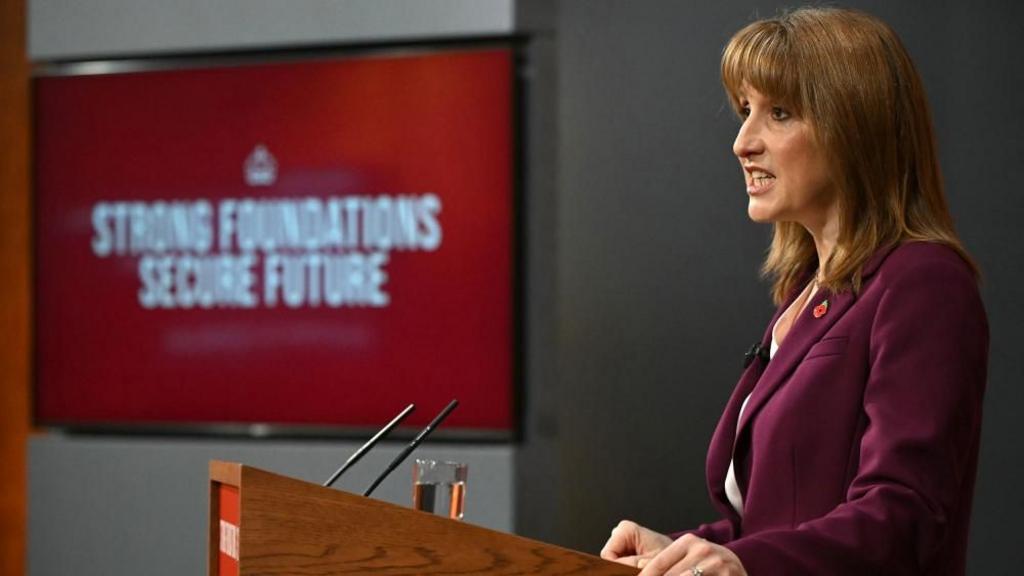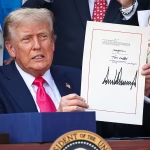Rachel Reeves' Autumn Budget Warning: The Tax Hike That Could Cost You £500+ Next Year
By Adam Arnold | Politics & Finance Feature | November 5, 2025
Chancellor Rachel Reeves dropped a bombshell this week, all but confirming that income tax hikes loom large in her Autumn Budget showdown. With a gaping £22 billion hole in the public finances staring her down, the Labour heavyweight's stark words cut through the Westminster fog like a winter chill. Inflation bites harder than ever, productivity flatlines, and the ghosts of Brexit and past fiscal fumbles haunt every Treasury meeting. Reeves, ever the straight-talker, laid it bare in her surprise speech: "Each of us must do our bit… I deal with the world as I find it, not the world as I might wish it to be." It's a gut-punch reminder that the promises of stable taxes from the election trail now clash head-on with brutal economic reality.
Gone are the days of easy fiscal fixes. Labour's manifesto swore off hikes on working people, yet the deficit's sheer size forces Reeves's hand. This isn't just policy wonkery—it's a direct swipe at family budgets already stretched thin by soaring energy bills and grocery shocks. As the November 26 Budget edges closer, households from Manchester terraces to London flats brace for the squeeze. What does a potential tax bump really look like for you? And could it finally steady the ship for public services gasping for air?
Unpacking Income Tax: The Heavyweight Revenue Machine
Income tax stands as the UK's cash cow, funneling about a quarter of all Treasury coffers from salaries, freelance gigs, pensions, rentals, and even savings interest. It's the tax that touches nearly every earner, from baristas to boardroom bosses.
Right now, the bands sit frozen in time, largely untouched since 2010 when the top 45% rate debuted amid austerity's early salvos. Here's the breakdown:
- £0–£12,570: Zero tax, a lifeline for the lowest earners.
- £12,571–£50,270: 20% basic rate, snagging most working families.
- £50,271–£125,140: 40% higher rate, hitting professionals and managers.
- £125,141+: 45% additional rate, reserved for the elite few.
Upping these could flood the Exchequer with fresh billions, but the fallout? A wave of resentment from voters feeling the pinch just when relief seems distant.
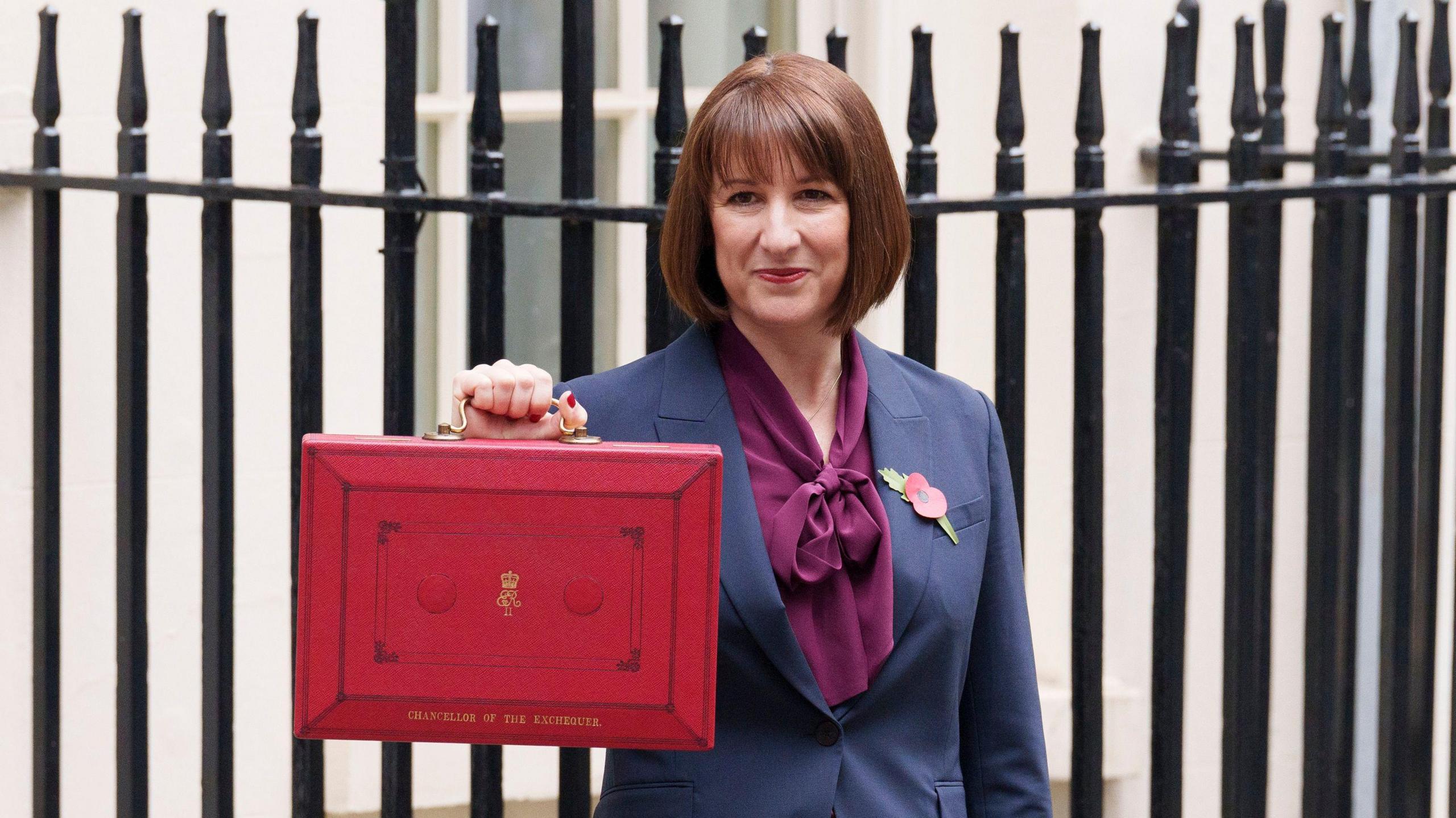
Chancellor Rachel Reeves pictured with the iconic red Budget Box outside Downing Street, as speculation grows over a potential tax rises in the Autumn Budget
The Revenue Windfall: Billions from a Single Percentage Point
According to analysis reviewed by Finance Monthly, the Institute for Fiscal Studies crunches the numbers: a blanket 1 percentage point lift across all rates might haul in £10.9 billion yearly by 2029-30. The bulk surges from tweaking the basic rate, where millions cluster in that vital £12,570–£50,270 slice.
Break it down further:
- Basic rate jump (20% to 21%): A hefty £8 billion boost.
- Higher rate nudge (40% to 41%): £1.2 billion more.
- Additional rate tick-up (45% to 46%): £230 million from the top tier.
That 1p shift sounds trivial, yet it packs a wallop, especially stacked against the stealthy freeze on thresholds. Wages creep up with inflation, but so do your tax brackets—silently dragging you deeper into higher payments without a formal rate change. It's fiscal sleight-of-hand that's already fattened bills for the squeezed middle.
Your Tax Bill Under the Microscope: Real Numbers, Real Pain
Picture the sting: a modest 1p rise ripples through paychecks unevenly, hammering middle earners hardest while the wealthy shrug it off. Here's the raw math for a full year's hit:
| Annual Income | Current Tax | Tax After 1p Hike | Increase |
|---|---|---|---|
| £20,000 | £1,486 | £1,560 | £74 |
| £35,000 | £3,024 | £3,248 | £224 |
| £55,000 | £11,376 | £11,800 | £424 |
| £75,000 | £19,473 | £20,097 | £624 |
| £110,000 | £23,012 | £24,036 | £1,024 |
It's not abstract; it's the skipped family holiday or the deferred home repair. As one adviser put it amid the Budget buzz, the mood among clients borders on dread—99% now foresee rises, per a fresh survey of UK wealth managers.
Fiscal Drag's Silent Erosion: Why Freezes Hurt More Than You Think
Layer on the frozen thresholds, and the plot thickens into outright frustration. This policy—holding bands static as prices and pay climb—shunts workers into pricier brackets without fanfare. A £50,000 salary in 2021 balloons to £64,295 today via inflation, yet your tax jumps nearly £3,000 beyond what fair adjustments would demand.
Fast-forward to 2030: that same profile faces £16,997 in tax versus £12,520 if bands tracked living costs—a £4,477 shortfall that stings like lost wages. Chartered planner Alex Race nails the emotional toll: "A 1p hike may seem modest, but combined with fiscal drag it’s a double whammy for middle earners, eroding disposable income just as households grapple with rising living costs."
Reeves eyes extending this freeze, a move that could swell revenues by £10 billion over five years without touching rates outright. But for families, it's betrayal wrapped in policy—promises of protection dissolving into higher deductions that chip away at dreams deferred.
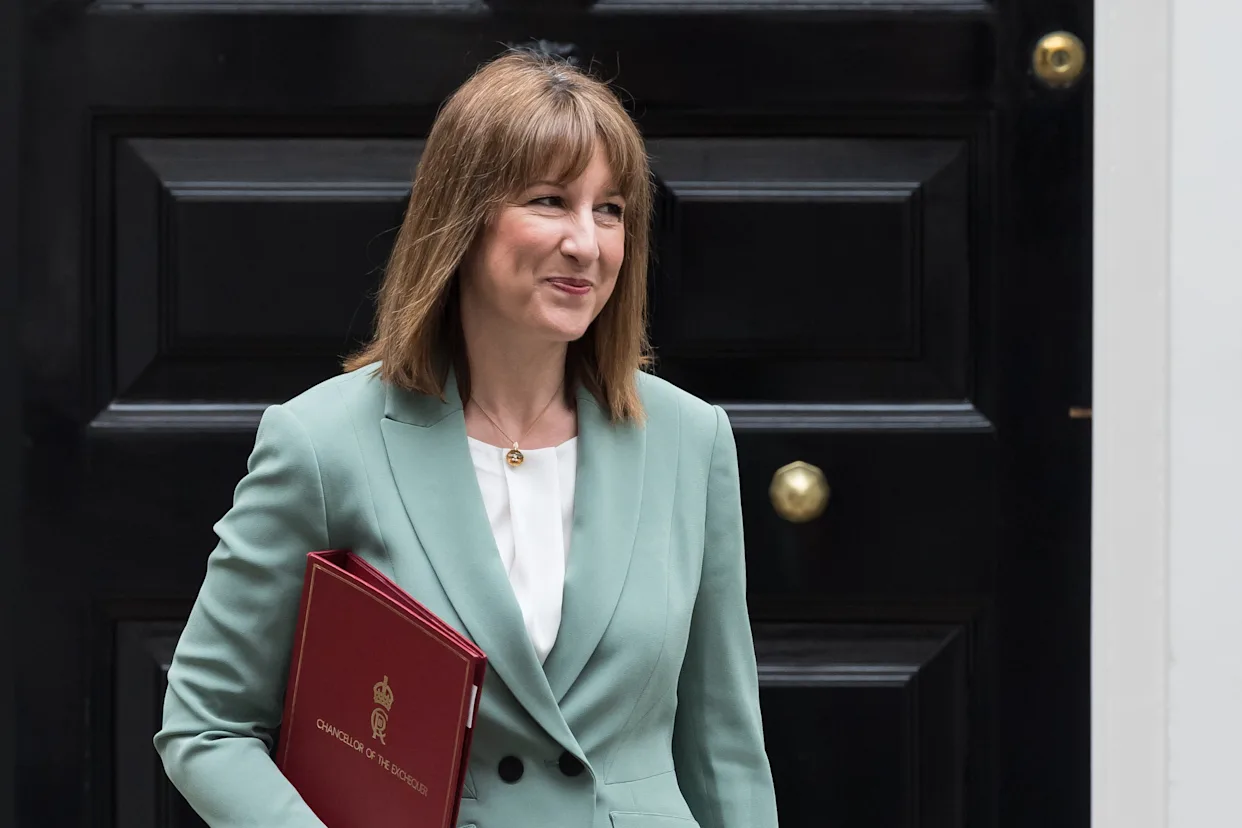
Chancellor Rachel Reeves outlines plans to increase taxes in the November Budget.
The Uneven Load: Who Feels the Weight Most?
Reeves vows fairness, insisting broader shoulders bear more. The top 10% already shoulder over 60% of income tax, up from 53.5% in 2010—a nod to progressive intent amid inequality's grind. A 1p higher-rate rise alone nets £2.1 billion; the additional band's £230 million pales but punches up for ultra-high earners.
Yet risks lurk: if top talent flees overseas, the Treasury hemorrhages £4.1 billion, per estimates. It's a high-stakes gamble, balancing revenue grabs against the brain drain that could hobble growth for years.
Economist Paul Johnson of the Institute for Fiscal Studies adds weight to the case: "Raising revenue via income tax was less economically damaging than increasing the other big taxes." His point? VAT spikes fuel inflation's fire, NI hikes curb hiring—but income tax, while painful, spares broader economic scars, especially if targeted wisely at the affluent.
No Escape Hatch: Why Reeves Corners Herself
Borrowing soars to five-year peaks, growth sputters at sub-1%—Reeves stares down a manifesto minefield. Incremental income tax tweaks? Check. Pinpointed hits on high earners? Likely. NI expansions for partners or pros? On the table. Threshold freezes? Almost certain.
These aren't academic choices; they ripple into retiree routines, young parent budgets, and the very spending that props up high streets. The £22 billion gap demands action, but at what cost to the national spirit?
Beyond the Hike: How Fiscal Drag Is Quietly Gutting Your Retirement Dreams
Amid the rate-rise rhetoric, one under-the-radar beast deserves spotlight: fiscal drag's chokehold on long-term savings. In simple terms, it's the government's sneaky way to collect more without admitting a tax increase. As your salary edges up to match inflation—say, from £40,000 to £42,400 next year—the frozen bands don't budge. Suddenly, a chunk of that "raise" vanishes into higher taxes, leaving less for your pension pot or rainy-day fund.
It compounds quietly, like interest in reverse. Over a decade, that drag could siphon £5,000–£10,000 from what you'd sock away for retirement, according to Institute for Fiscal Studies models—money that might otherwise compound into £20,000 more by age 65 at modest returns. For a family juggling mortgages and school fees, it's not just numbers; it's the difference between a comfortable dotage or scraping by on state scraps, all while inflation mocks your efforts.
According to analysis reviewed by Finance Monthly, historical data shows fiscal drag has already boosted Treasury coffers by £20 billion since 2021, disproportionately from mid-income savers earning £30,000–£60,000. Think of Sarah, a 45-year-old admin in Leeds (details anonymized): her £48,000 pay five years ago now incurs £1,200 extra tax yearly due to drag, forcing her to trim pension inputs just as markets reward steady drips.
Don't wait for Budget Day clarity—act now with a pre-emptive pivot. Shift to salary sacrifice pensions before December 5, 2025, to lock in current rates and dodge the drag's full bite; it slashes your taxable income by up to £5,000 annually while boosting employer matches. Pair it with maxing your £20,000 ISA allowance this tax year—untouchable by hikes—and you've shielded £25,000 from the storm. It's a defensive play that turns policy pain into personal gain, backed by experts who see this as the smart hedge against Reeves's fiscal vise.
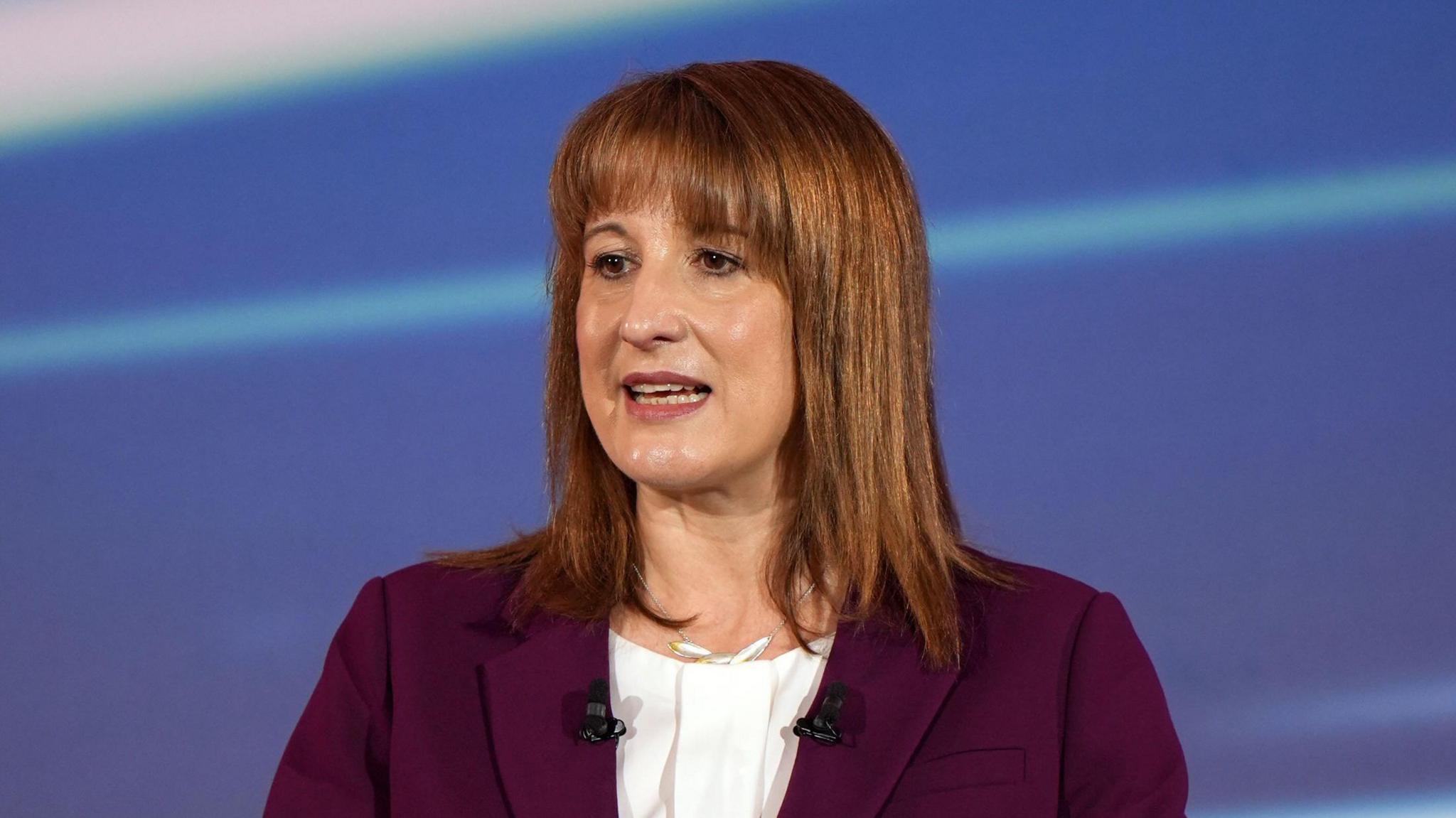
Chancellor Rachel Reeves outlines proposed exit and mansion taxes ahead of the November 2025 Budget, aiming to address the UK’s fiscal gap.
The Verdict: A Pinch That Echoes Through Wallets Nationwide
This 1p whisper of a hike, tangled with drag and freezes, lands like a thud on dinner tables everywhere. Higher earners absorb the lion's share, yet everyday taxpayers—those propping up the NHS and schools—feel the raw edge too. In an era where every pound fights for space amid cost-of-living wars, Reeves's moves crystallize government's grip on your grind.
Tough calls await, but so does the fallout: curbed spending, frayed morale, and a nation questioning if the pain will yield real gain.
Burning Questions on Reeves and the Tax Squeeze
What Is Rachel Reeves' Net Worth in 2025?
Rachel Reeves, the no-nonsense Chancellor steering the UK's fiscal ship, clocks in with an estimated net worth of around £2.5 million as of 2025. This stems mainly from family property holdings in south London—valued at over £1 million—and modest savings built from her economics career at the Bank of England and parliamentary salary. Her latest Register of Members' Financial Interests, updated in October 2025, shows no flashy assets like stocks or offshore accounts, keeping her profile grounded amid the wealth debates she champions.
How Will the Proposed Tax Hike Hit Pensioners Hardest?
Pensioners could face a stealthy sting from any income tax rise, especially if it pairs with frozen thresholds. Those relying on state or private pensions often dip into the basic rate band, where a 1p bump adds £74 yearly on £20,000 income—enough for a few extra grocery runs. Worse, fiscal drag nudges more over-65s into higher brackets as modest pension hikes track inflation, potentially costing £500–£1,000 extra annually by 2030 for average retirees, per Office for Budget Responsibility projections.
Could This Budget Finally End the Threshold Freeze?
Unlikely in the short term—Reeves has signaled plans to extend the freeze through 2028, netting the Treasury an extra £10 billion over five years without direct rate hikes. But pressure mounts from backbench MPs and think tanks like the IFS, arguing it unfairly burdens workers. Watch for tweaks, like inflation-linked relief for low earners, to soften the blow and dodge voter backlash in local elections.



